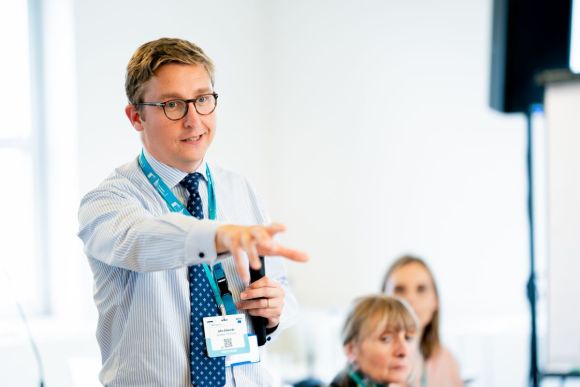
The policymakers came together on Wednesday 9 October for the “ Education and Training Institutions bringing research and innovation closer to citizens and communities” session held within the EU regions Week. They discussed what can be done to make the educational institutions closer to the citizens.
The discussions centred on Skills and Smart Specialization Policy Report, human capital, different forms of mobility and place-based curriculum.
Speaking to participants at the session, John Goddard, Emeritus Professor at Newcastle University, highlighted the importance of involving citizens in all steps of the co-production of knowledge, while hailing the differences between a civic university and traditional university.
There is no doubt that our society has changed its form of becoming a peer-to-peer society, requiring new methods for the production of things. Therefore, the educational specialists need to seek collaboration with the citizens along with the NGOs, governments, and businesses. Prof. Goddard also stated that enhancing the role of citizens in knowledge production can contribute to the UN Sustainable Development Goals.
Prof.Goddard also commented on the implementation of a Regional Smart specialization strategy, noting that it aims to deliver a sustainable and inclusive growth. This strategy enables each region to identify and develop its own competitive advantages.
Carmela Calés Bourdet, Vice-Rector for Internationalisation at the Universidad Autónoma de Madrid, touched on the CIVIS project. An European civic University that aims to achieve more inclusive, extended and extensive mobility. New models of the curriculum need to be developed, and an open door academic policy may be pursued at higher education institutions, Mrs. Bourdet said. It can be argued that the low level of student mobility has mainly been observed in those countries, which pursue the same policy when it comes to the curriculum.
Technological University Dublin / BH Associates drew attention to the Vocational Education and Training focusing on investment in human capital with high level and medium level skills.
“According to the forecast, there will be an increase in the number of people with high-level skills and high-level research skills. However, the data shows that 45 % of the population by 2030 will need middle-level skills”, Mrs. Hazelkorn noted.
She also called to put more emphasis on place-based curriculum and smart specialization for educational institutions.
Discussions of different levels of educational institutions such as university, VET, college and others, prove the necessity of paying the same amount of attention to all these levels. It is also essential to provide the citizens with the necessary competencies and skills to achieve sustainability and inclusivity.
In a final panel discussion, the policymakers concluded that education must be integrated with research and innovation, appropriate instruments should be found and developed. Cities should be mapped in accordance with the knowledge and intellectual abilities.
Leyla Jabbarzade (Azerbaijan)



